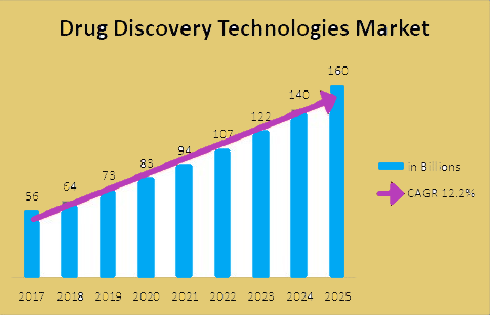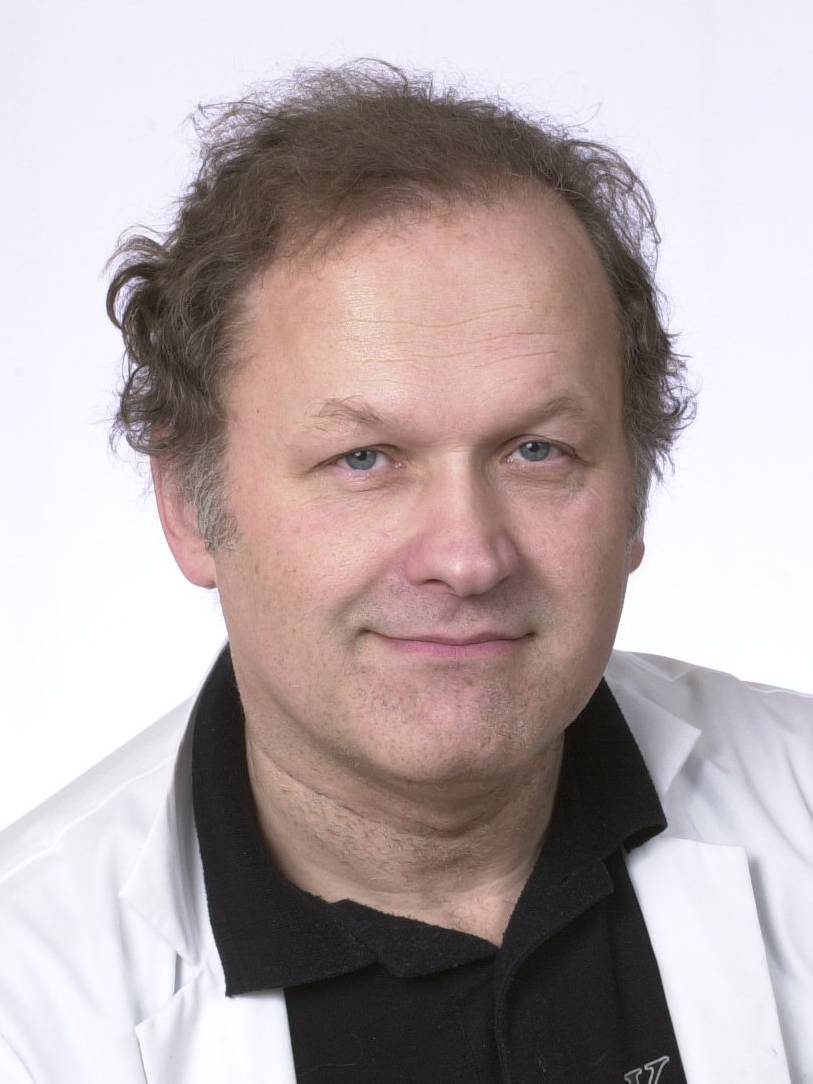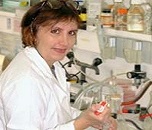Theme:
Euro Pharmacology 2021
Pharmaceutical Conferences cordially invites participants from all over the world to attend “17th Annual Congress on Pharmacology & Toxicology”, scheduled during December 02-03, 2021 as a Webinar.
The event offers a best platform with its well organized scientific program to the audience which includes interactive panel discussions, keynote lectures, plenary talks and poster Sessions. Pharmacology & Toxicology is a global platform to discuss and learn about research Advances in Pharmacology, Neuropharmacology & Psychopharmacology, Toxicology, Nursing Pharmacology, Ethnopharmacology, Food & Chemical Toxicology.
Motives to Attend:
- Keynote presentation along with interactions to galvanize the scientific community.
- Workshop and symposiums to reach the largest assemblage of participants from the Pharma community.
- A wide track of exhibitors to showcase the new and emerging technologies.
- Platform to global investment community to connect with stakeholders in Pharma sector.
- Young Scientist/ Investigators Award geared towards best budding young research.
- Links to the political marketing resources to expand your business and research network.
- Triumph of Awards, Certificates recognizes your commitment to your profession to encourage the nascent research.
Target Audience:
- Researchers
- Directors, CEO’s of Organizations
- Scholars from Pharmacology, Pharmaceutical, Toxicology backgrounds
- PhD Scholars
- Drug Delivery Technology Manufacturers
- Business Development Managers
- Distributors and Suppliers of Drug Delivery Technologies
- Students, Professors, Researchers, and Faculty of Pharmacology & Pharmaceutical Sciences from Universities and Medical Colleges
- Researchers from Pharmaceutical Companies, Pharmacy & Pharmacology Associations and Societies
- Health professionals
- Pharmacists, Pharmacologists, & Toxicologists
- Business development professionals, Consultants, Pharma, and Toxicology Testing service providers
- Quality control specialists
- Graduates and post graduates in industrial pharmacy
- Medical Devices Manufacturing Companies, CRO
- Data Management Companies.
- Pharmaceutical legislators and regulators
- Toxicology Testing Companies & Organizations
Track 01: Pharmacology
Pharmacology helps to understand drug action at the organ and organismal levels. The application of computational and experimental systems biology approaches to pharmacology allows us to expand the definition of pharmacology. It helps to include network analyses at multiple scales of biological organization and to explain both therapeutic and adverse effects of drugs. Pharmacology analyses rely on experimental "omics" technologies that are capable of measuring changes in large numbers of variables, often at a genome-wide level, to build networks for analyzing drug action.
Track 02: Toxicology
Toxicology can be defined as the study of the adverse effects of chemicals, pharmaceutical chemicals or any other physical agents on living organisms. Adverse effects may occur in many forms, ranging from immediate death to subtle changes not realized until months or years later. They may occur at various levels within the body, from cellular level to organ level and can affect the organism or sometimes a specific biochemical. The safety evaluation of pharma products involves evaluation for the risk that a drug can pose to animals and man with respect to normal physiological function and reproductive performance. Drug safety and efficacy testing are essential for new pharma drugs, biological, herbal and natural remedies, nutraceuticals and probiotic food products, and select cosmetics before they are introduced in the market.
Track 03: Ethnopharmacology
The study of action and properties of medicinal agents, often derived from plants, indigenous to population or ethnic groups. Ethnopharmacology is an amalgam of perspectives, primarily those of pharmacology, pharmacognosy, anthropology, and botany. Ethnopharmacology has contributed to the discovery of many important plant-derived drugs. Herbalism when combined with phytochemistry and ethnopharmacology is a powerful means for drug discovery. Ethnopharmacology is restricted to natural products used in a traditional context.
Track 04: Neuropharmacology & Psychopharmacology
Neuropharmacology can be defined as the study of how cellular functions in the nervous system, got affected by drugs and the neural mechanisms through which they influence behavior. The two main branches of neuropharmacology are behavioral and molecular pharmacology. Behavioral neuropharmacology focuses on how drugs affect human behavior. It also includes the study of how drug addiction and dependence effect on the human brain. Studying these interactions, scientists are developing drugs to treat many different neurological disorders, including pain, neurodegenerative diseases such as Parkinson's disease and Alzheimer's disease, psychological disorders, addiction, and many others.
Psychopharmacology cab be referred as the study of drug-induced changes in thinking, mood, and behavior. These drugs may take their origin from natural sources such as plants and animals, or from artificial sources such as chemical syntheses in the laboratory. These drugs interact with target sites or receptors within the nervous system and induce widespread physiological changes or psychological functions.
Track 05: Molecular and Clinical Pharmacology
Molecular Pharmacology, this branch of pharmacology focuses on understanding the nature of the molecular recognition processes between macromolecular targets and drugs. Another major development in molecular pharmacology has been the discipline of pharmacogenomics: the study of how an individual’s genetic makeup influences their responses to therapeutic drugs.
Clinical pharmacology is a branch of biomedical science. It includes drug discovery, the study of the effects of drugs on their targets in living systems and their clinical use, as well as the study of biological function related to these chemicals. Clinical pharmacology includes application of pharmacological principles, such as pharmacodynamics and pharmacokinetics.
Track 06: Nursing Pharmacology
Nursing pharmacology helps nurses to understand how drugs work in the body. They enable them to understand the therapeutic effects, anticipate and recognize the potential side effects or toxicities of the drugs administered by the patients. In drug therapy today, nurses, together with physicians and pharmacists, participate in a system of checks and balances designed to promote beneficial effects and minimize harm. Nurses are especially important in this system because it is the nurse—not the physician or pharmacist—who follows the patient’s status most closely.
Track 07: Environmental Pharmacology
Environmental pharmacology is a branch of pharmacology. It deals with the entry of harmful chemicals or drugs into the environment after elimination as post-therapy from humans and animals. Environmental pharmacology includes ecopharmacology, pharmacoenvironmentology, and ecotoxicology. The origin of Origins of pharmaceutical and personal care products in the environment are portions of most ingested drugs are excreted in varying unmetabolized amounts (and in undissolved states because of protection by excipients) primarily via the urine and feces, bio-active metabolites, conjugates, free excreted drugs and derivatives can escape degradation in municipal sewage treatment facilities; the conjugates can be hydrolyzed back to the free parent drug, and un-degraded molecules are then discharged to receiving surface waters or find their way to ground waters, e.g., leaching, recharge.
Track 08: Genetic toxicology
Genetic toxicology helps to discern the possibility of heritable mutations, developmental defects, cancer initiation, aging, and other long-term adverse genetic effects. Genotoxicity describes the assets of chemical sellers that damage the genetic records inside cellular causing mutations, which may lead to most cancers. At the same time, genotoxicity is often stressed with mutagenicity; all mutagens are genotoxic, while no longer all genotoxic materials are mutagenic. The alteration could have direct or indirect consequences at the DNA: the induction of mutations mistimed occasion activation, and direct DNA damage leading to mutations.
Track 09: Drug Discovery & Drug Screening
Reverse pharmacology includes drug screening deals with reverse pharmacology and forward pharmacology are two approaches to drug discovery. Target based drug discovery is the process through which potential new medicines are identified. It involves a wide range of scientific disciplines, including biology, chemistry and pharmacology, screening of chemical libraries and its pharmacology, methods to determine biological targeting, by systematically perturbing and interrogating biological pathways with synthetically novel chemical tools, preclinical validation of target biology is beginning to illuminate a more cost-effective and efficient paradigm for the development of novel drugs modulating novel targets.
Track 10: Cardiovascular Pharmacology
Cardio pharmacodynamics of digitalis is most frequently used to increase the adequacy of the circulation in patients with CCF and to slow the ventricular rate in patients with atrial fibrillation or flutter NB: the main action of digitalis is its ability to increase myocardial contractility its positive isotropic action results in, a. increased cardiac output, b. decreased heart size, c. decreased venous pressure, d. decreased circulating blood volume. e. neural tissue being responsible for indirect cardiac actions of the drug finally, changes to the circulation brought about by digitalis frequently result in reflex autonomic & hormonal changes which affect the CVS. Role of drugs in coronary circulation the circulatory system is busy providing oxygen and nourishment to every cell of the body, let's not forget that the heart, which works hardest of all, needs nourishment. Ethnopharmacology is to identify the objectives of a largely virtual field whose self-identified membership represents a diverse suite of academic and applied disciplines, as well as commercial interests. Integrative Pharmacological Investigations include conglomeration of more number of pharmacological aspects and aggregated scientific research of two or more drugs. Natural products of chemistry in drug discovery play a vital role in bringing advances in traditional drug treatments. Chemistry and structural elucidation of drugs accelerate potential treatment options in the evolving developmental changes.
Track 11: Forensic toxicology
Forensic toxicology uses toxicology and other disciplines such as analytical chemistry, clinical chemistry and pharmacology to aid medical or legal investigation of drug use, poisoning and death. It deals with the investigation of toxic substances, poisonous products and environmental chemicals. The primary concern of Forensic Toxicology is to obtain and interpret the results. Toxicological analysis can be done to various kinds of samples. Forensic toxicology involves not only determining the presence of Toxic substance in the post-mortem body, but how the body’s natural processes affect the substance, including chemical change and dilution. Investigators rely on the forensic toxicologist to make reliable conclusions about the impact a specific amount of a specific substance would have on a specific individual. Currently, forensic toxicology is the study of drugs, alcohol and poisons, including their chemical composition, identification and preparations. It comprises knowledge about the absorption, distribution and elimination process of such substances in the body, as well as the manner in which the body responds to their presence and the factors which define Drug Safety and efficacy.
Track 12: Food and Chemical Toxicology
Food and Chemical Toxicology (FCT), an internationally renowned journal, that publishes original research articles and reviews on toxic effects, in animals and humans, of natural or synthetic chemicals occurring in the human environment with particular emphasis on food, drugs and chemicals, including agricultural and industrial safety, and consumer product safety. Areas such as safety evaluation of novel foods and ingredients, biotechnologically-derived products and nanomaterials are included in the scope of the journal. FCT also encourages submission of papers on inter-relationships between nutrition and toxicology and on in vitro techniques. Furthermore new areas such as safety evaluation of novel foods and biotechnologically derived products and inter-relationships between nutrition and toxicology are welcomed. The studies may address the physiological, biochemical or pathological changes induced by specific substances, techniques for assessing potential toxicity, including molecular biology or the mechanisms underlying toxic phenomena.
Track 13: Pharmacological Testing
Pharmacological Testing includes both Pharmacologic stress testing and nuclear stress test. Whereas the Pharmacologic stress testing is the set up after activity testing, is an analytic system in which cardiovascular anxiety affected by pharmacologic operators is shown in patients with diminished useful limit or in patients who can't work out. And Pharmacological nuclear stress test is a demonstrative test used to assess blood stream to the heart. Amid the test, a little measure of radioactive tracer is infused into a vein. A unique camera, called a gamma camera, identifies the radiation discharged by the tracer to create PC pictures of the heart.
Track 14: Pharmaceutical Chemistry
Pharmaceutical chemistry is one considered to be pharmaceutical, with deep roots in the chemistry and Sciences border with Pharmacology, studying the design, synthesis and development of molecules with biological activity and drugs for therapeutic purposes. Pharmaceutical chemistry aims the identification, synthesis and the development of new chemical compounds that are suitable for therapeutic use. This includes the study of existing drugs, their biological properties and their quantitative structure-activity relationship. She also studies the quantitative interactions among these molecules and its biological effects. It's a very deep and complex discipline that combines knowledge of organic chemistry, combinatorial chemistry, bioinformatics, biochemistry, pharmacodynamics, bio pharmacy and pharmacokinetics.
The size of the pharmaceutical market is expected to reach $ 2,151.1 billion by 2027. The pharmaceutical market was worth $ 5.32 billion in 2019 and will post a CAGR of 7% during the forecast period. The increasing attention to the healthcare sector in the context of the pandemic is expected to drive the growth of the market in the near future. The Pharmaceuticals Market report offers an in-depth analysis of the Pharmaceuticals industry and demand drivers, highlighting information on several aspects of the market.
The global market is segmented into drugs and vaccines. As an indication, the market is divided into oncology, diabetes, anti-viral, cardiovascular disorders, neurological disorders, anti-infective, respiratory disorders, and anti-hypertensive. In terms of region, the market is divided into North America, Europe, Asia-Pacific, Latin America, Middle East, and Africa. Large companies in the global pharmaceutical market are increasingly focusing on research and development activities to create new and innovative products in order to stay ahead of the competition.

In recent years, major drug manufacturers have turned to external service providers for R&D and manufacturing services. Growing demand for personalized products, the need to improve productivity and efficiency throughout the value chain, and continued pressure from regulators on drug prices have forced pharmaceutical companies to rely on more on how to outsource drug development. Most large-scale drug makers opt for in-house production, as it allows companies to control the private information associated with new molecules. The expansion of in-house manufacturing facilities by key companies is also driving the growth of the segment.
Conference Highlights
- Pharmacology
- Toxicology
- Ethnopharmacology
- Neuropharmacology & Psychopharmacology
- Molecular and Clinical Pharmacology
- Nursing Pharmacology
- Environmental Pharmacology
- Genetic toxicology
- Drug Discovery & Drug Screening
- Cardiovascular Pharmacology
- Forensic toxicology
- Food and Chemical Toxicology
- Pharmacological Testing
- Pharmaceutical Chemistry
To share your views and research, please click here to register for the Conference.
To Collaborate Scientific Professionals around the World
| Conference Date | December 02-03, 2021 | ||
| Sponsors & Exhibitors |
|
||
| Speaker Opportunity Closed | |||
| Poster Opportunity Closed | Click Here to View | ||
Useful Links
Special Issues
All accepted abstracts will be published in respective Our International Journals.
- American Journal of Pharmacology and Pharmacotherapeutics
- Clinical Pharmacology & Biopharmaceutics
- Journal of Forensic Toxicology & Pharmacology
Abstracts will be provided with Digital Object Identifier by

























